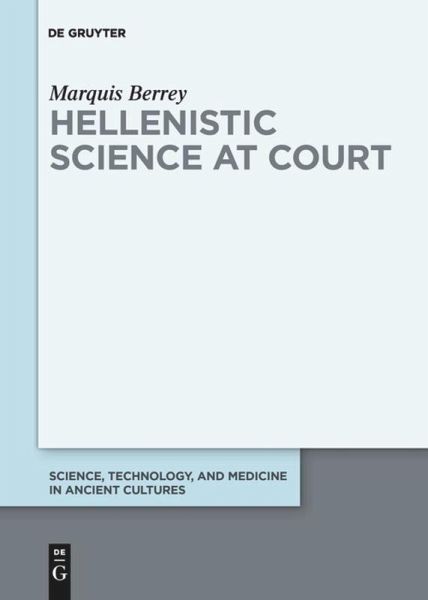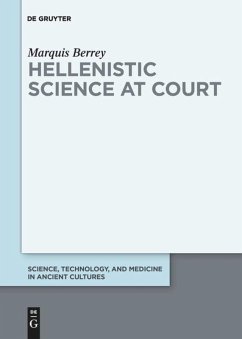
Hellenistic Science at Court
Versandkostenfrei!
Versandfertig in 6-10 Tagen
102,99 €
inkl. MwSt.
Weitere Ausgaben:

PAYBACK Punkte
51 °P sammeln!
The development of science in the modern world is often held to depend on such institutions as universities, peer-reviewed journals, and democracy. How, then, did new science emerge in the pre-modern culture of the Hellenistic Egyptian monarchy? Berrey argues that the court society formed around the Ptolemaic pharaohs Ptolemy III and IV (reigned successively 246-205/4 BCE) provided an audience for cross-disciplinary, learned knowledge, as physicians, mathematicians, and mechanicians clothed themselves in the virtues of courtiers attendant on the kings. The multicultural Greco-Egyptian court so...
The development of science in the modern world is often held to depend on such institutions as universities, peer-reviewed journals, and democracy. How, then, did new science emerge in the pre-modern culture of the Hellenistic Egyptian monarchy? Berrey argues that the court society formed around the Ptolemaic pharaohs Ptolemy III and IV (reigned successively 246-205/4 BCE) provided an audience for cross-disciplinary, learned knowledge, as physicians, mathematicians, and mechanicians clothed themselves in the virtues of courtiers attendant on the kings. The multicultural Greco-Egyptian court society prized entertainment that drew on earlier literature, mixed genres and cultures, and highlighted motion and sound. New cross-disciplinary science in the Hellenistic period gained its social currency and subsequent scientific success through its entertainment value as court science. Ancient court science sheds light on the long history of scientific interdisciplinarity.













